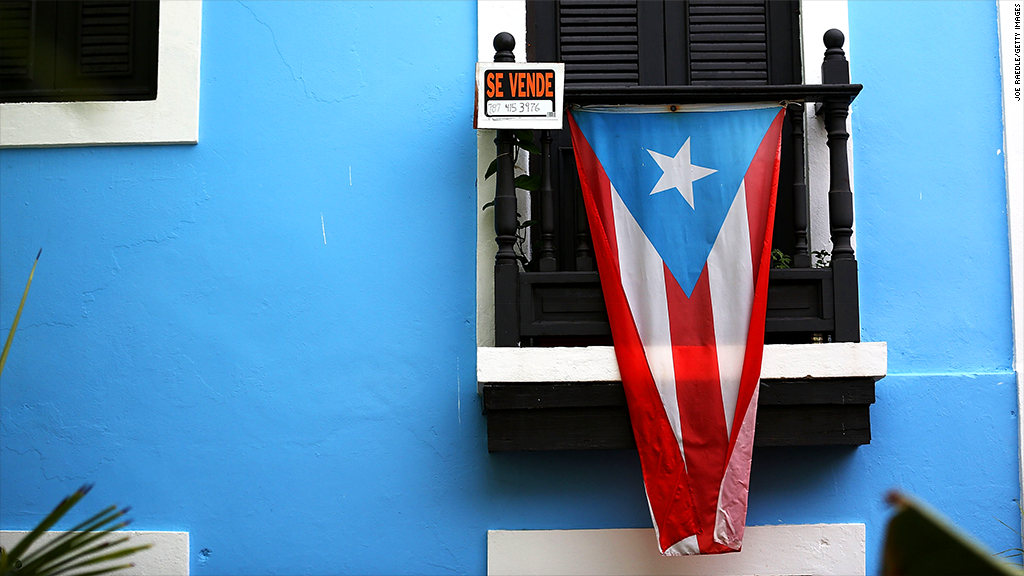
Puerto Rico just did something that hasn't happened since 1933.
The deeply indebted island defaulted Friday on debt that is supposed to be guaranteed by the Puerto Rican constitution. In other words, Puerto Rico was supposed to pay creditors who hold general obligation bonds before paying anyone else, even police.
But Governor Alejandro García Padilla said: No. He argued that paying teachers, emergency personnel and other critical needs must come first.
"This administration continues to take historic steps to ensure the residents of Puerto Rico continue to receive essential services while the commonwealth continues to face a delicate financial situation," a spokesman said Thursday.
The island isn't planning to make any of the $800 million payment to its bondholders due on July 1. Puerto Rico's government says it is in a "dire" financial position with only about $350 million in cash on hand right now.
Puerto Rico's default Friday marks the first time that a state or state-like entity (Puerto Rico is a U.S. territory) has failed to pay general obligation bonds since the Great Depression.
Related: Puerto Rico's crisis: How did it get so bad?
The default was expected, and thus isn't causing much havoc in the wider bond market. The island is over $70 billion in debt -- about $20,000 per island resident. Puerto Rico has already defaulted three times on other types of bonds, and it has warned for months that it wouldn't have the money to pay for this debt either.
There is some dispute about whether Puerto Rico is really out of money. On Friday, the island finally released its long overdue audited financial statements for 2014.
"It's really troubling from a creditor point of view," Dominic Frederico, CEO of Assured Guaranty, said recently at a conference. His company is one of the insurers of Puerto Rico's debt that's made it clear it won't negotiate further until reviewing reliable numbers.
President Obama and Congress crafted a rescue bill for the island, a bipartisan compromise meant to create an orderly process to come to some sort of compromise between the island and the bondholders to work out a re-payment plan.
Related: There's a big sale on Puerto Rican homes
Obama signed the bill Thursday afternoon. Mere hours later, Governor Padilla issued an executive order saying the island would stop making general obligation bond payments, among other types of bond payments.
Defaults normally trigger lawsuits, but the bill Congress passed forbids bondholders from suing the island for several months. Instead, a fiscal Oversight Board will be appointed soon and tasked with coming up with a plan.
Update July 1 at 3pm to note that Puerto Rico released its audited financial statements for 2014 on Friday.


